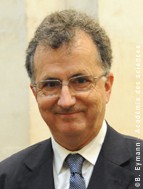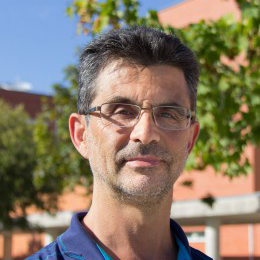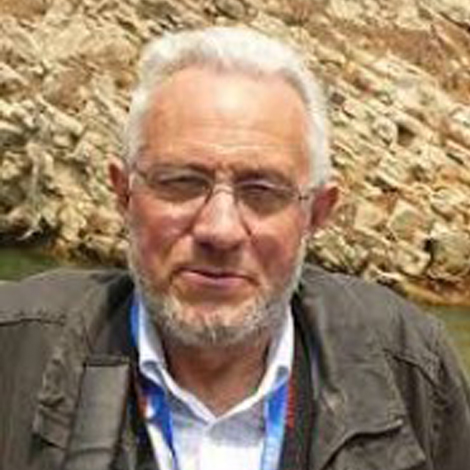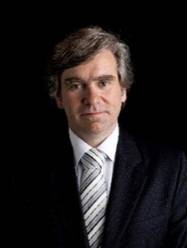“The Future of Science in the 21st Century: Sciences and Ethics”
The broad theme Science and Ethics has been a subject of concern for scientists, philosophers, science administrators and decision-makers since the end of WW2, and much more recently since the development of biotechnologies. As a matter of fact, this subject has become a matter of public interest, and not only of specialists. Many problems are involved : the self-representation of science and its internal values (the so-called epistemic values), the public understanding of science, the role of expertise in political decision, the relationships between ethics and law, and the increasing necessity of an ethical education of scientists themselves (see the recommendations of ALLEA and of some national committees of UNESCO). Some of these items will be discussed at the EURASC meeting in Porto.
Speakers and abstracts

Professor Claude Debru , France
“Some remarks about the ethical education and training of scientists and physicians”
This presentation will be based on the proceedings of a symposium organized by the French national committee for UNESCO and published in 2014 under the title La formation des scientifiques à l’éthique. Prof. Debru will deal with a sketch of the present situation and with some recommendations for future developments which were presented at the end of this symposium. The relevance of ethics for scientific development is widely recognized. However in certain educational systems there are real obstacles against a more systematic introduction of ethical perspectives in overspecialized curricula. Some institutions, endowed with more freedom and located outside the man system of higher education, or having a more practical orientation like the medical schools, the hospitals, some agricultural schools, and some engineering schools have developed a fairly great experience in the training of ethics. A stronger willingness is needed to introduce such a training in scientific curricula at universities. This training may be offered in some universities at the predoctoral level, usually in combination with epistemology and history of science.

Professor João Rocha, Portugal
“Materials Science, culture and ethics : personal accounts”
Assessing the biological role and possible toxicity of nanoparticles for man and other living organisms presents formidable challenges and raises many ethical questions. The role of materials scientists is pivotal in settling this debate.

Professor Simon Berkovich , United States
“Shifting the paradigm in the time of crisis”
“One of the greatest pains to human nature is the pain of a new idea” (Walter Bagehot). Not surprisingly, in fundamental science realization of groundbreaking discoveries are delayed, as a rule, by more than 50 years. Nowadays, we witness an all-encompassing Information Revolution. It does not seem that this progress is accompanied with a penetrating understanding of Nature. Proper understanding of the ultimate organization of Nature is crucial for the survival of human civilization in all aspects. A delicate ethical question arises: could we afford waiting 50 years without drastic support of new ideas?

Professor Paul Tréguer , France
“Marine sciences in the 21st century: ethical issues”
The ocean covers more than 70% of the surface of planet Earth. For food, we need to exploit its  biological resources. Some of them are already almost exhausted, should we continue? For the development of new technologies we need metals that are abundantly deposited on specific sites of the sea floor. To retrieve these deposits we now have efficient deep sea mining techniques. However their potential for damaging deep sea ecosystems is high. Should we exploit our deep sea resources? In specific areas of the world ocean, through small-scale artificial fertilization of the surface waters we already experienced an enhancement of the biology-mediated transfer of CO2 from the surface to the ocean interior, thus decreasing the atmospheric concentration of CO2 above the ocean. So, by manipulating the ocean we can decrease the green-house effect and thus the global warming. We can do it. Should we do it?

Professor Anna Olsson , Portugal
“Ethics in Animal Research”
The ethical controversy over animal experimentation is nearly as old as the use of animals in research. In this presentation, Dr. Olsson will focus on the second discussion of how to ensure that research with animals is in the best way. Current ethical, political and social justification for the use of animals in research relies on the assumption that (human) benefits can offset (animal) suffering, and that animal welfare is safeguarded as much as possible. The need to balance the interests of advancing research and protecting animal welfare is also the basis for the recently revised European legislation regulating animal experimentation. However, legislation cannot regulate in detail which individual projects should be licensed or how research should be designed and carried out: the variety of research protocols and rapid development of science requires a more flexible decision-making mechanism. The licensing procedure – in many jurisdictions including an ethics evaluation – is therefore a major determinant of how experiments are conducted.

Professor Sir John Meurig Thomas, United Kingdom
“Reflections on Ethical Aspects of the Future of Science”
Although I am not a molecular biologist, two iconic individuals who were, Max Perutz and John Kendrew, were close friends of mine and Fellows of the Cambridge College of which I was Master. This talk focuses in part on their attitudes towards Science in general and, in particular, to two of their junior associates, Francis Crick and Jim Watson. What would have happened if Perutz and Kendrew, as supervisors, had insisted on being co-authors of their famous 1953 Nature paper on the structure of DNA ?

Professor Rui Nunes, Portugal
“Science, Ethics and Bioethics”
Prof. Nunes will develop first the foundations of bioethics (human dignity and fundamental human rights), with reminders of important historical steps (Convention of Human Rights and Biomedicine, Universal Declaration on Bioethics and Human Rights). Regarding the principles of biomedical ethics, he will comment the respect of personal autonomy, the beneficence, the non-maleficence, the justice. The role of ethics committees as regulatory instruments, and Research ethics committees, will be discussed, as well as various controversial ethical issues in sciences.
Gallery















